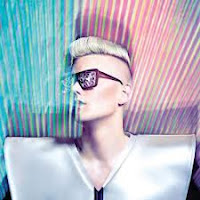 |
Dodger, by Terry Pratchett
Funny, fast-paced adventure played out in Victorian London. Dodger is a good-hearted teenaged thief—action and hilarity ensue. |
 |
After the Snow, by S. D. Crockett
A post-apocalyptic survival tale set during a new Ice Age, focusing on one teen's quest for his missing family. |
 |
Fahrenheit 451, by Ray Bradbury
Classic dystopian novel. A timeless and important look at the effect of extreme censorship on a population. |
 |
The Outsiders, by S. E. Hinton
Brotherhood, friendship, and Robert Frost—a terrific character study examining the consequences of violence. |
 |
Hoops, by Walter Dean Myers
Thoughtful depiction of a teen deciding between a life of crime and the promise of a scholarship. |
 |
The End Games, by T. Michael Martin
Action-packed adventure set in the wake of a zombie apocalypse, as two brothers seek other survivors. |
 |
Pirate Cinema, by Cory Doctorow
A teenaged protagonist obsessed with creating pirate remixes of his favourite films learns to use technology and art to effect political change. |
 |
The Absolutely True Diary of a Part-Time Indian, by Sherman Alexie
A teenager growing up on a reservation must surmount internal and external obstacles to attend a white school twenty-two miles away. |
 |
Will Grayson, Will Grayson, by John Green and David Levithan
Full of fun and music, this book examines the lives of two boys—one gay, one straight—who share the same name. |
 |
This Dark Endeavour: The Apprenticeship of Victor Frankenstein, by Kenneth Oppel
The imagined prequel to Mary Shelley's horror classic, with young Victor as the brilliant, but not-yet mad scientist's apprentice. |
 |
Ender’s Game, by Orson Scott Card
In preparation for an invasion by aliens, the most talented children on earth are taken to a special school that finds and trains fleet commanders. |



































